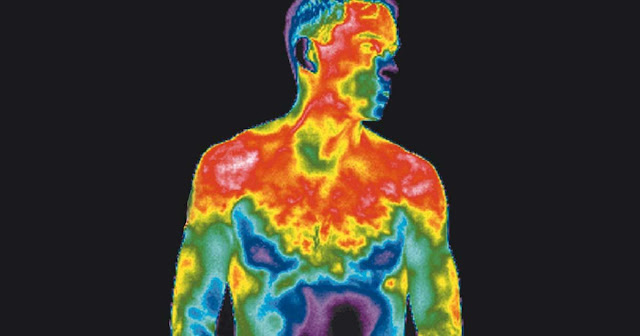How To Reduce Body Heat Quickly And Get Relief
Overview
Body temperature measures the body’s ability to generate and get rid of heat. The normal temperature is often quoted as 98.6°F, but it can be slightly lower or higher. The average temperature of adults is between 97.8°F and 99.0°F.
Usually, your hypothalamus and autonomic nervous system keep your body within a degree or two of your normal temperature. However, there are times when your body heat rises. This condition is known as heat stress.
Heat stress may be due to extreme heat, certain foods, or other factors. Continue reading to learn more about the causes of high body heat and what you can do to find relief.
Reasons body temperature may rise
Several factors can cause your body temperature to rise. Here are a few common reasons for heat stress:
- Having an inflammatory illness, such as an infection. Such an illness can cause you to have a fever, which is one indication that something unusual is going on in your body.
- Having a thyroid disorder known as hyperthyroidism. This causes your body to produce too much thyroid hormone.
- Spending time in extremely hot and humid weather. It’s especially likely if you’ve spent time in direct sunlight or have been doing physical activity.
- Wearing tight-fitting, synthetic clothing. These types of fabrics trap moisture and don’t breathe easily, especially if they’re tight.
- Eating spicy, oily, or fried food. In addition, nuts, meats, and other high-protein foods can contribute to heat stress.
- Consuming drinks with caffeine or alcohol.
- Performing intense physical exercise. This can cause an increase in heat since active muscles and related blood circulation activity create a lot of heat.
- Having certain medical conditions that affect your body temperature, such as types of arthritis, leukemia, and neurological disorders.
- Taking drugs that cause high body temperatures, such as certain antibiotics, opioids, and antihistamines.
- Being dehydrated. Dehydration can lower your body’s ability to sweat to cool you down and support a normal temperature.
You probably know how important it is to hydrate with water when you have heat stress. There are lots of other ways to lower your body heat quickly as well. The following home remedies are easy and effective ways to beat the heat.
Cold foot bath
Placing your feet in a cold foot bath cools your body and allows you to sit back and relax. Simply add cold water and ice cubes to a bucket of water. Immerse your feet and soak for up to 20 minutes. Add a few drops of peppermint essential oil for an added cooling effect.
Coconut water
Drinking coconut water is a great way to refresh and revitalize your body. The vitamins, minerals, and electrolytes in coconut water make it an effective way to
Peppermint
Peppermint is known for its cooling properties due to its high menthol content, which makes one have the sensation of feeling cooler. You can make a hot or iced peppermint tea and drink it throughout the day. While hot tea may seem to make you feel hotter, drinking hot drinks may help you to sweat more and help to cool down your body.
Purchase peppermint tea here.
Hydrating foods
Eat plenty of foods high in water content. Fruits such as cantaloupe, watermelon, and strawberries are good options.
Try eating lots of vegetables such as celery, cucumber, and cauliflower. You can eat these foods raw in a salad. Alternatively, add a bit of ice to incorporate them into a healthy smoothie since yogurt is also a cooling food.
Sitali breath
This yoga breathing technique has a cooling effect on your body and your mind. Sitali breath helps you to relax and cool down both physically and mentally.
To do this:
- Sit in a comfortable seated position.
- Stick out your tongue and roll the outer edges together similar to a hot dog bun.
- If your tongue doesn’t curl like this, you can pucker purse your lips.
- Slowly inhale through your mouth.
- Then exhale out through your nose.
- This is one round.
- Continue breathing like this for up to 5 minutes.
Dress accordingly
Play it cool in a hat with a wide brim and sunglasses if you’ll be in direct sunlight. You can even carry a parasol or umbrella.
Wear loose, lightly colored clothing in natural fabrics such as cotton, linen, or silk. Semi-synthetics such as rayon and modal can also be worn to combat body heat. Scientists are developing fabrics created especially to keep you cool, such as thermal regulation fabrics. Products made with these types of fabrics are often designed for sport and outdoor activities.
Aloe Vera
The leaves and inner gel of this healing plant can help to lower body temperature.
You can apply aloe vera gel to your skin for a cooling effect. Either use the inside gel of a fresh plant or a pure aloe vera gel. For added benefits, keep it in the refrigerator before application.
Aloe vera can also be consumed internally. Use 2 tablespoons of fresh aloe vera gel per cup of water to make a drink.
Purchase premade aloe vera drinks here.
Buttermilk
Drinking buttermilk may help to cool down your body and improve metabolism. It’s also full of probiotics (traditional buttermilk), vitamins, and minerals that will help to restore your body’s natural energy if you’re feeling drained by the heat.
Try drinking a glass of cold buttermilk. Adding honey or yogurt is optional but may make the flavor more to your liking.
Fenugreek
Sipping a cup of fenugreek tea may help to bring on a sweat, allowing you to cool off. If you don’t like the idea of drinking a hot drink, you can make the tea ahead of time and chill it in the refrigerator before drinking it.
Fenugreek may also be useful in getting rid of some excess fluid and detoxifying the body.
Purchase fenugreek tea here.
Chili
Even though eating spicy food can make you feel warm, it can also help to lower your body temperature. That’s because the capsaicin in chilies sends messages to the brain to signal that your body is overheated. This causes you to sweat more than normal and brings on a cooling effect.
These remedies should help to cool you down if you’re feeling the heat. If your body temperature seems to be high for an undetermined reason or you’re not cooling down after trying some of these remedies, see your doctor. This is especially important if:
- you have an underlying medical condition
- you’re over 65 years of age
- you’re pregnant or nursing
- it’s occurring in young children or babies
Heat stress has the potential to turn into heat exhaustion or heat stroke if left untreated, so seek help if you or a loved one is having extreme discomfort that doesn’t ease. In addition, learn the signs and symptoms of heat emergencies.




Comments
Post a Comment